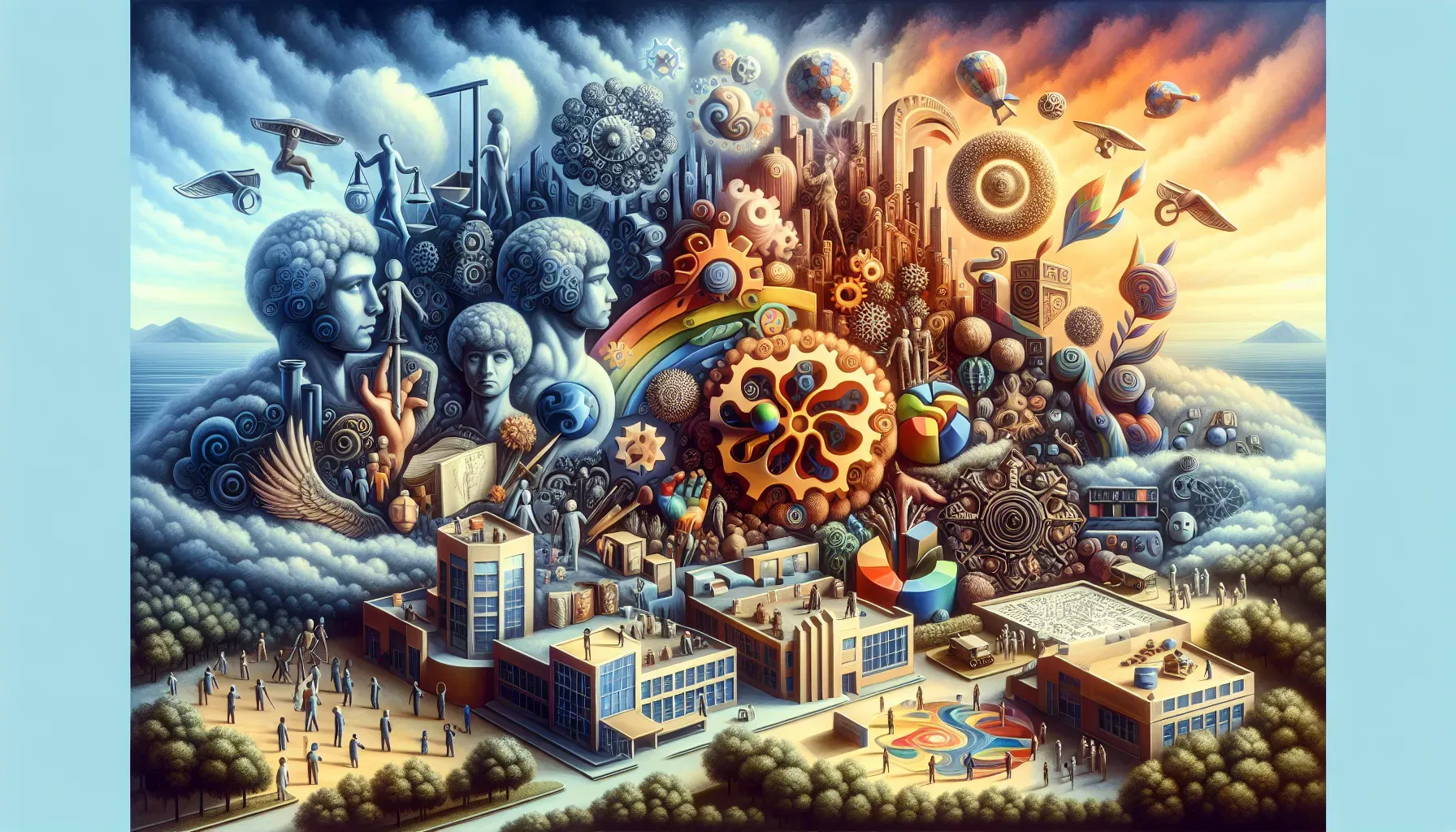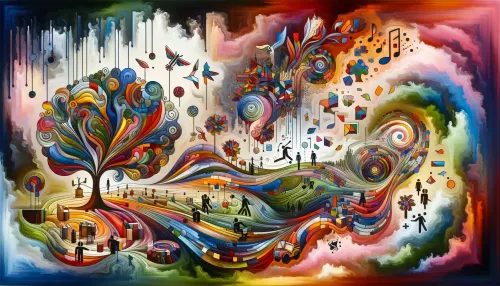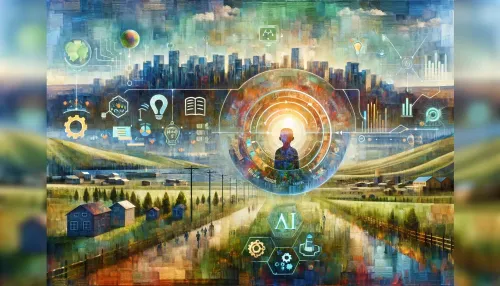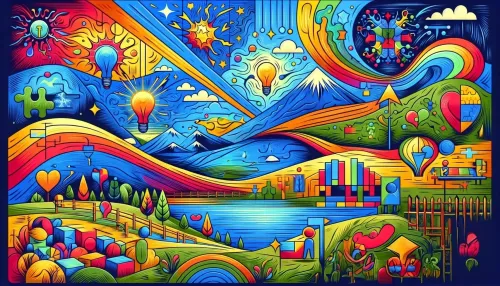Nurturing Autistic Talent: The Untold Potential in Arts and Sciences

Autism is often associated with social and communication challenges, but within this community lies a wealth of untapped talent. By understanding and nurturing the unique abilities of autistic individuals, we can uncover remarkable potential in both arts and sciences, revolutionizing these fields in unprecedented ways.
Artistic expression transcends conventional forms of communication, offering autistic individuals a powerful channel for self-expression. Many autistic individuals possess an extraordinary capacity for visual arts, music, and other creative endeavors. It's essential to recognize and support these talents to provide them with a platform for creative expression and personal growth.
Uncovering Artistic Talents in the Autistic Community
Autistic individuals often exhibit intense focus, exceptional attention to detail, and a unique cognitive perspective. These attributes align closely with the demands of scientific inquiry, presenting an opportunity for autistic minds to drive innovation across various scientific disciplines. Embracing neurodiversity in scientific research can lead to groundbreaking discoveries that may have otherwise remained undiscovered.
The Impact of Autistic Minds on Scientific Discovery
Art therapy has emerged as a valuable tool for unlocking the hidden talents of autistic individuals. By providing a supportive environment that encourages creative expression, art therapy can help autistic individuals communicate their emotions and experiences non-verbally. This approach not only fosters artistic development but also enhances emotional well-being and self-esteem.
Adapting STEM education to accommodate neurodiverse learning styles is crucial for nurturing autistic talent in scientific fields. Customized learning approaches, such as incorporating visual aids, hands-on activities, and structured routines, can create an inclusive learning environment that empowers autistic individuals to excel in science, technology, engineering, and mathematics.
Related Article: Autism and Education: Enhancing Learning for Autistic Children
Using Art Therapy to Reveal Hidden Talents
The world has witnessed numerous remarkable individuals within the autistic community who have demonstrated exceptional abilities or "savant skills." These case studies serve as inspiring examples of how autistic talent can drive innovation and redefine traditional perceptions of intelligence. Understanding and celebrating these achievements is vital for fostering an inclusive society that values diverse forms of expertise.
Adapting STEM Education for Neurodiverse Learners
Inclusive orchestras and art galleries provide platforms for autistic artists to share their creations with the world. These initiatives not only celebrate artistic talent within the autistic community but also challenge societal stereotypes by highlighting the unique perspectives and contributions of autistic individuals in the arts. Embracing neurodiversity enriches our cultural landscape with fresh, innovative artistic expressions.
Inspiring Case Studies of Autistic Savants
Autistic individuals often exhibit distinct cognitive advantages, such as heightened pattern recognition, analytical thinking, and exceptional memory retention. Recognizing these strengths is essential when designing educational programs tailored for neurodiverse learners. By leveraging these cognitive advantages, we can cultivate a more inclusive and dynamic learning environment that benefits all students.
From early childhood education to professional development programs, it's imperative to create comprehensive support systems that cater to the diverse needs of autistic individuals. By offering specialized training, mentorship opportunities, and workplace accommodations, we can empower autistic talent to thrive in both artistic and scientific pursuits. These programs play a pivotal role in fostering career growth and fulfilling potential.
Showcasing Autistic Artists in Inclusive Platforms
Integrating autistic talent into mainstream arts and sciences requires a collaborative effort involving educators, employers, policymakers, and community advocates. By implementing inclusive practices, promoting awareness, and providing necessary resources, we can bridge cognitive diversity effectively. Embracing neurodiversity not only enriches our creative and scientific landscapes but also promotes a more equitable society where every individual's abilities are valued.
Cognitive Advantages of Autistic Individuals in STEM
In conclusion, nurturing autistic talent in arts and sciences requires a holistic approach that celebrates diversity, fosters inclusion, and harnesses the unique strengths of each individual. By embracing neurodiversity across these domains, we can unlock unparalleled creativity and innovation while creating more supportive environments for all members of the autistic community.
Frequently Asked Questions
Art therapy serves as a valuable tool for autistic individuals by providing a supportive environment that encourages creative expression. It helps them communicate emotions and experiences non-verbally, fostering artistic development while enhancing emotional well-being and self-esteem. This therapeutic approach can unlock hidden talents and promote personal growth.
To effectively support autistic learners in STEM education, it's crucial to adapt teaching methods to their unique learning styles. Incorporating visual aids, hands-on activities, and structured routines can create an inclusive environment that empowers these students to excel in science, technology, engineering, and mathematics, ultimately nurturing their talents.
Integrating autistic talent into mainstream arts and sciences requires collaboration among educators, employers, policymakers, and community advocates. Implementing inclusive practices, promoting awareness, and providing necessary resources can bridge cognitive diversity effectively. Embracing neurodiversity enriches both creative and scientific fields while fostering a more equitable society.
Check Out These Related Articles

Learning Adventure: Creative Educational Approaches to Cater to Autistic Childrens Diverse Learning Styles

Inclusive Education: Tailoring Learning Pathways for Varied Autistic Profiles

Personalized Learning Pathways: Revolutionizing Education for Autistic Children with AI
